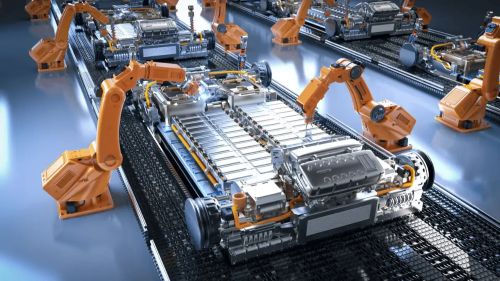


Understanding kW and kWh: What Every EV Owner Should Know
As a leading EV charger manufacturer in China, LiCB Charge delivers reliable AC and DC electric vehicle charging stations along with comprehensive charging solutions.
For those new to electric vehicles (EVs), terms like kilowatt (kW) and kilowatt-hour (kWh) often cause confusion. At LiCB Charge, we believe understanding these basics makes EV ownership easier and more enjoyable. Here’s a straightforward guide to help you grasp what kW and kWh mean, and why they matter for your EV and charging habits.
A kilowatt (kW) is a unit of power—the rate at which energy is used or produced at any moment. One kW equals 1,000 watts.
In everyday life, appliances like heaters or light bulbs display power ratings in watts or kW.
For EVs, kW refers to two main things:
Motor Power Output: How much power the car’s motor can use to drive. For example, a 100-kW motor can deliver more acceleration and performance than a 50-kW motor.
Charging Power: How fast a charger can deliver electricity. A charger rated at 7 kW will charge your EV faster than one rated at 2 kW.
A kilowatt-hour (kWh) measures energy—how much electricity is used or stored over time. It combines power with the duration it’s used.
For example, running a 1-kW heater for one hour consumes 1 kWh of energy.
In EVs, kWh defines battery capacity, which determines how far you can drive on a full charge.
A 40-kWh battery stores less energy and offers a shorter driving range than a 75-kWh battery.
kW calculation:
kW = Watts ÷ 1,000
Example: A 1,500-watt appliance = 1.5 kW
kWh calculation:
kWh = Power (kW) × Time (hours)
Example: A 2-kW device running for 3 hours = 6 kWh
kW measures instantaneous power — how fast energy is being used or supplied at a moment.
kWh measures total energy — how much energy is consumed or stored over time.
Think of kW as speed and kWh as distance traveled.
Motor Power (kW): Affects acceleration and performance. Higher kW means more powerful driving.
Battery Capacity (kWh): Determines driving range. Bigger batteries last longer between charges.
Charging Speed (kW): Chargers with higher kW ratings refill your battery faster.
Level 1 (1–2 kW): Slow charging from a regular outlet, ideal overnight.
Level 2 (7–22 kW): Faster home or public charging.
DC Fast Charging (50–350 kW): Ultra-fast, perfect for long trips.
Plan trips: Know your EV’s energy use (e.g., 15 kWh/100 miles) to estimate how much to charge.
Compare EVs: Bigger battery (kWh) = longer range but possibly higher cost.
Estimate costs: Multiply kWh used by your electricity rate to find charging expenses.
Is a higher kW motor always better?
Not always — more power means more energy use. Choose based on your driving needs.
Does a bigger battery take longer to charge?
Usually, yes, but a higher kW charger can reduce charging time significantly.
Grasping the difference between kilowatts (kW) and kilowatt-hours (kWh) helps you understand EV performance, charging speed, and costs. At LiCB Charge, we aim to make your EV journey simple and informed. Whether you’re shopping for a new EV or managing your charging routine, understanding these terms empowers you to drive smarter and enjoy electric mobility to the fullest.Know more about Google SEO Directory
